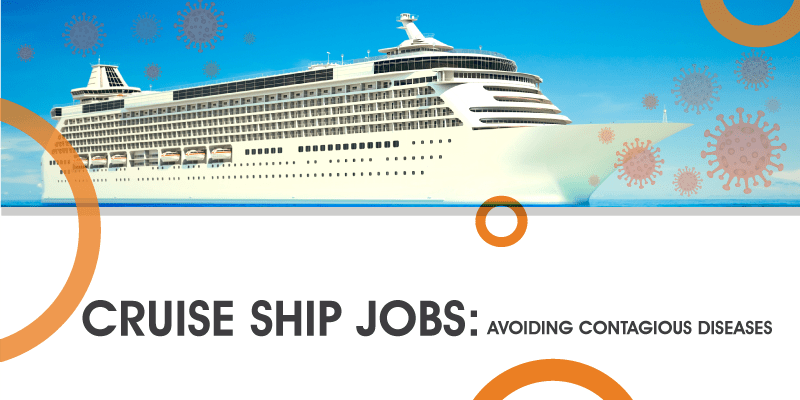As vaccinations roll out across the world, travel is looking more accessible. The US has recently allowed fully vaccinated people to resume recreational travel domestically. They don’t need a Covid test or quarantine, which is optimistic news for the cruise sector. But when cruising does get back on track, how can crew safeguard themselves from contagious diseases going forward?
Vaccinations
Most cruise ship companies already require vaccinations for contagious diseases. Measles, mumps, varicella or chickenpox, rubella, and seasonal flu are typically on the list. Yellow fever vaccines are compulsory for those who work on ships touring certain South American and African countries. It might be prudent to include vaccines for hepatitis, tetanus, shingles, cholera, and human papillomavirus, as well as any other prescribed by your doctor.
Know the symptoms
Read up about various contagious diseases, particularly norovirus and now Covid-19. Knowing what to look for can help you avoid other crew members displaying those symptoms and get them help. It also helps you get treatment early on if you happen to catch the virus yourself, thereby offering yourself a greater chance of a quick recovery.
Maintain distance
This can be rather difficult, particularly when working but as far as possible, keep at least six feet between you and any other person while on board. Once cruising starts, all crew members will be required to wear a mask covering their nose and mouth during work hours. Ensure you wear the required personal protective equipment and dispose of them in a sanitary manner.
Wash your hands & sanitise often
Bacteria and viruses are generally harmless on the outside of your body. It’s only when they are able to infect cells within that you get sick. Entry can be through any of the orifices of your body so it’s important to keep them clean at all times. The mouth, nose, and eyes are most susceptible to germ transmission. To avoid this, wash your hands frequently and avoid touching your face unless your hands have been washed. If you do not have access to soap and water, use a sanitizer. Hand sanitizers containing benzalkonium chloride or at least 60 percent alcohol are usually your best bet against viruses and bacteria.
Keep your surroundings clean
Norovirus is a common cruise ship disease spreading quickly from one to another and often leaving debilitating consequences in its wake. Other than washing your hands, it’s important to keep your work station, its surroundings and your cabin clean. Wipe them down with disinfectant as frequently as needed to kill any germs.
Eat healthy & exercise regularly
A healthy immune system is built on good, regular nourishment. While the specific effects of diet and exercise on immune response are still being studied, Harvard Medical School has suggested that “general healthy-living strategies make sense since they likely help immune function and come with other proven health benefits”. Eating a well-balanced diet and exercising regularly is important for overall health and ensures your body is not deficient in micronutrients and vitamins that can help build a stronger immune system.







Leave a Reply